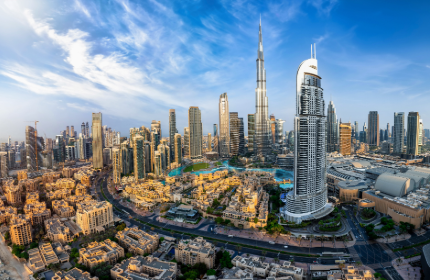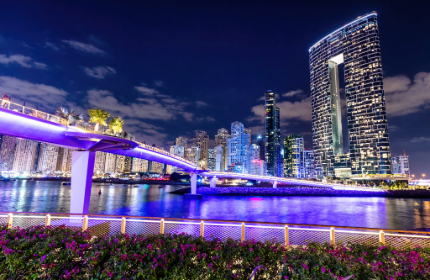Buoyant investor demand to drive Dubai’s housing delivery to 35000 units in 2024 – Khaleej Times

The continued buoyancy in Dubai’s residential market will see more than 35,000 new units delivered by the end of the year as innovative product offerings, attractive payment options and recent updates to the golden visa requirements continue to drive investor demand, a study by JLL said.
In the first quarter, around 10,000 units were delivered in Dubai and 1,600 in Abu Dhabi, demonstrating strong growth in the UAE’s residential sector as developers shift focus towards secondary locations, according to JLL’s UAE Real Estate Market Overview for Q1 2024.
“Dubai market recorded a strong start to the new year, with approximately 10,000 units completed throughout the first quarter, raising the total stock to 729,000 units. Over the remaining nine months, an additional 25,000 units are scheduled for delivery in Dubai, primarily consisting of apartments located in prominent areas such as MBR City, Business Bay, Jumeirah Village and Dubai Land.
In Abu Dhabi, there was a steady delivery of 1,600 units with 6,000 units expected to be added by the end of the year,” the report said.
Faraz Ahmed, research director at JLL Mena, said Dubai’s residential sales transactions recorded a 20 per cent increase in volume compared to the same period last year, whereas Abu Dhabi witnessed a 17 per cent increase in volume, with more apartment transactions than villas and townhouses. “However, escalating land prices and construction costs are compelling developers to shift their focus towards secondary locations in addition to targeting properties within the Dh2 million price range, enabling buyers to meet the threshold for the Golden Visa eligibility.”
Dubai market saw sale prices and rentals recording 21 per cent annual increases. Apartment rentals, in particular, experienced a considerable annual surge of 22 per cent, surpassing the growth rate of villa rentals at 14 per cent. Demand for villas remained robust, with a notable uplift of 22 per cent y-o-y in sale prices. In Abu Dhabi, sales prices increased by an average of 7.0 per cent, while rental rates rose by an average of 4.0 per cent during the same period. Similar to Dubai, apartments in Abu Dhabi recorded higher rental hikes of 5.0 per cent compared to villas. However, in terms of sale prices, villas in Abu Dhabi grew by 9.0 y-o-y.
As healthy tourism activity drives the hospitality sector’s growth, Dubai recorded strong growth with 2,000 keys being added in the first quarter, resulting in a total stock of 155,000 keys. New hotel openings predominantly consisting of 5-star properties located in areas such as Business Bay, Za’abeel, and Port Saeed saw the addition of nearly 2,000 keys during Q1 2024, bringing the total to approximately 155,000 keys. Another 5,000 keys, consisting of both 4- and 5-star properties, are expected to be added in the emirate through the year. In contrast, Abu Dhabi’s hotel supply remained relatively stable at 32,500 keys, and an additional 500 keys are anticipated to be added during the year, JLL report said.
According to Dubai’s Department of Tourism (DET), the city welcomed 3.67 million visitors in January and February, reflecting a notable 18 per cent increase compared to the previous year. Western Europe, South Asia and the GCC emerged as the largest source markets, collectively accounting for 53 per cent of the total share. These healthy tourism figures helped sustain a 5.0 per cent growth in average daily rates (ADR), reaching $226, resulting in revenue per available room (RevPar) increasing 5.0 per cent y-o-y, reaching $185.
Abu Dhabi’s hotel performance has been influenced by robust tourism demand, a diverse calendar of events, and improved connectivity. For YT March 2024, city-wide occupancy was recorded at 81 per cent, and ADR increased by 8.0 per cent y-o-y to reach $161. RevPAR experienced significant growth, rising by 17 per cent to reach $130 when compared to the same period last year.
“Given the significant presence of luxury hotels, owners and operators in the hospitality industry are aware of the competitive advantage offered by experience-driven developments. Operators are investing in revitalising their product offerings to enhance their value propositions through partnerships with lifestyle groups, which facilitate the introduction of new concepts and brands, particularly within the highly lucrative F&B segment,” said the report.




